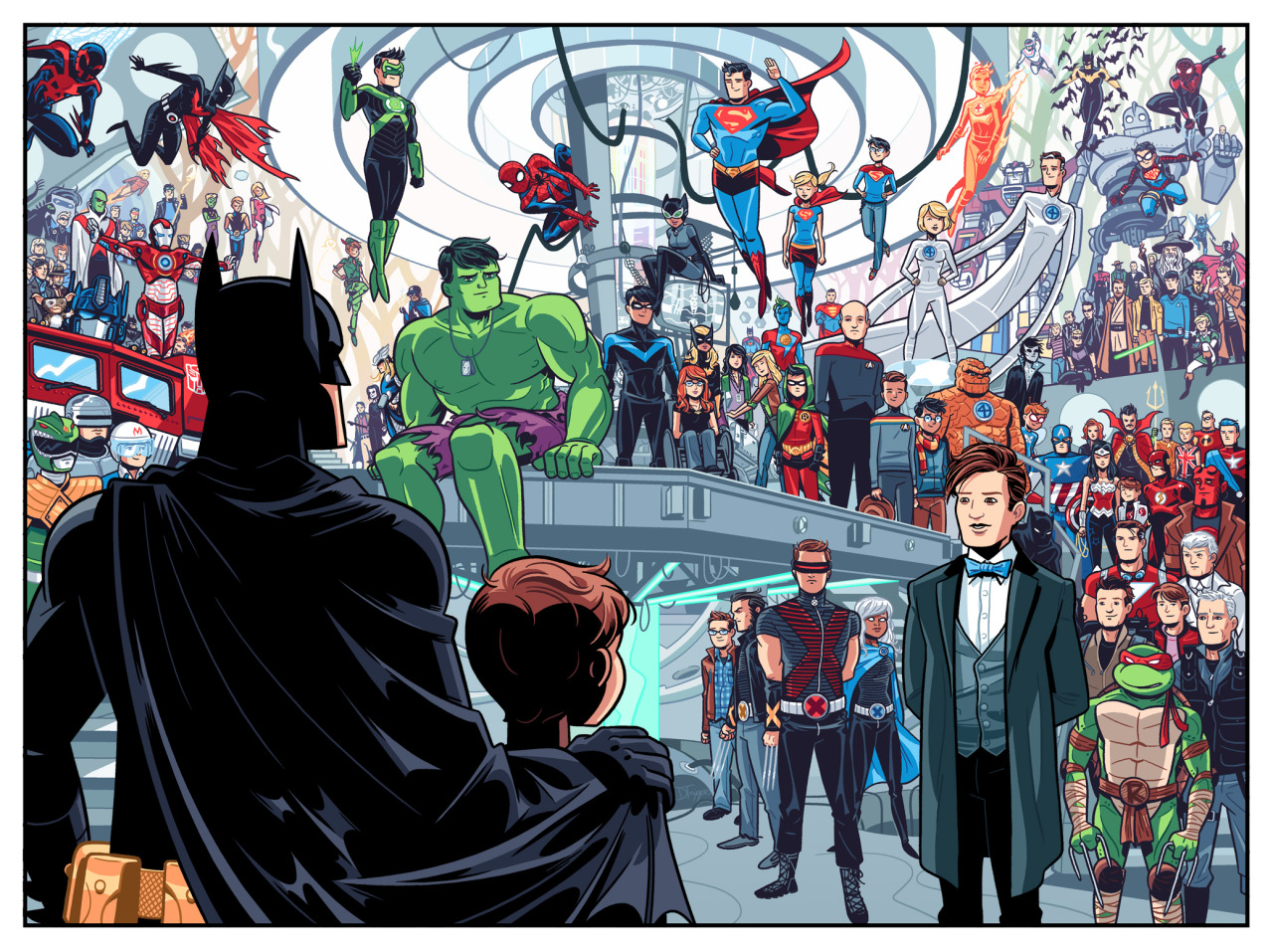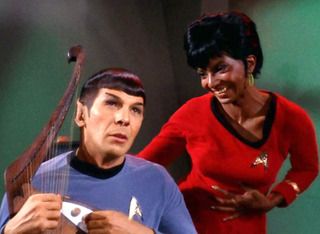But I'd love to start up getting more Library of Congress ornaments for this coming season.
It's a pity the one I like is saying Sold Out.
Damn.
Blue Book Pages
Saturday, September 24, 2016
Friday, September 23, 2016
Stat Tracking That Worries Me, September 2016 Edition
My blog keeps getting pinged for 30 views every 4 hours.
No articles read. Just views of the general web address. And it's always 30 views.
I'm pissing off Canada or Russia again, aren't I? Or is it those Chinese commentators, back to find out if I ever published more superhero novellas?
The world is after me now.
Just buy my damn books, you spammers. It's the least you can do.
Update: Oh no.
It's gone up to 31 views every 4 hours.
Revision to the Update: It's gone back down to 30 views.
Look, this is weird and unsettling and I'm worried somebody's trying to break into my blog account. If anybody knows how to filter this out so that the only ones I get are the Internet surfers looking to buy my books, please tell me.
No articles read. Just views of the general web address. And it's always 30 views.
I'm pissing off Canada or Russia again, aren't I? Or is it those Chinese commentators, back to find out if I ever published more superhero novellas?
The world is after me now.
Just buy my damn books, you spammers. It's the least you can do.
Update: Oh no.
It's gone up to 31 views every 4 hours.
Revision to the Update: It's gone back down to 30 views.
Look, this is weird and unsettling and I'm worried somebody's trying to break into my blog account. If anybody knows how to filter this out so that the only ones I get are the Internet surfers looking to buy my books, please tell me.
Wednesday, September 21, 2016
Book Covers Are Always Important
As part of teaching self-publishing - more specifically e-Publishing - one of the things I urge is the need to get a book cover lined up before you're ready to publish.
Well, first thing is obviously the book itself needs to be done, edited, corrected, spell-checked, etc. The second thing is the cover.
The book cover is what catches the potential reader's eye. It has to relate to the book's genre or topic. It has to be legible, visible, with a contrast of shadows to light that would not force people to go all cross-eyed glaring at it.
If you're a good graphic designer with effective photo editing tools (Photoshop, cough) then you don't have to worry much. If you're not that good (guilty look here) you ought to go shopping for one.
Depending on the type of book, there are places online you can shop. I've looked at several, tried some pretty expensive artistic ones - had to, for my superhero-themed books - and now I'm looking at the cost-effective ones.
There's a pretty decent marketplace site called Fiverr.
It works like a marketplace where the graphic artist posts their willingness to work on projects for a certain fee. They start as low as $5 - which is a boon for poor struggling self-publishers - and then charge a fee for additional costs. Throw in a tip at the end and you can be getting a book cover costing you around $20. Not too shabby.
An excellent part of the program is the time limit option: you can find graphic artists willing to get this done within a day. Which - if you're pressed for time focusing on a looming release date - can help get at least one thing taken care of while waiting on the rest.
Just to note, I did hire someone on Fiverr name of leahdesign, and she did good work so if anyone else is looking, check with her.
Good luck with your writings, everybody. And don't forget, NaNo is almost one month away!
Well, first thing is obviously the book itself needs to be done, edited, corrected, spell-checked, etc. The second thing is the cover.
The book cover is what catches the potential reader's eye. It has to relate to the book's genre or topic. It has to be legible, visible, with a contrast of shadows to light that would not force people to go all cross-eyed glaring at it.
If you're a good graphic designer with effective photo editing tools (Photoshop, cough) then you don't have to worry much. If you're not that good (guilty look here) you ought to go shopping for one.
Depending on the type of book, there are places online you can shop. I've looked at several, tried some pretty expensive artistic ones - had to, for my superhero-themed books - and now I'm looking at the cost-effective ones.
There's a pretty decent marketplace site called Fiverr.
It works like a marketplace where the graphic artist posts their willingness to work on projects for a certain fee. They start as low as $5 - which is a boon for poor struggling self-publishers - and then charge a fee for additional costs. Throw in a tip at the end and you can be getting a book cover costing you around $20. Not too shabby.
An excellent part of the program is the time limit option: you can find graphic artists willing to get this done within a day. Which - if you're pressed for time focusing on a looming release date - can help get at least one thing taken care of while waiting on the rest.
Just to note, I did hire someone on Fiverr name of leahdesign, and she did good work so if anyone else is looking, check with her.
Good luck with your writings, everybody. And don't forget, NaNo is almost one month away!
Thursday, September 8, 2016
These Are the Voyages of the Starship Lollipop
It's a Good Ship...
Actually, this should be a moment of incredible geek-out, but also a signal of DAMN WE'RE GETTING OLD:
This is the 50th anniversary of the first broadcast of Star Trek (aka The Original Series).
TO BOLDLY SPLIT INFINITIVES THAT NO MAN HAS SPLIT BEFORE!
...no, no, that's sexist.
TO BOLDLY SPLIT INFINITIVES THAT NO ONE HAS SPLIT BEFORE!
Damn, that's discriminatory towards hive-mind races.
Anyway.
I think I've explained before how Trek has been not only a major force within the genre of Science Fiction - not just film and television but also literature, and some of the best writers have been part of it - but the series is one of the great American cultural milestones.
When most Americans think Sci-Fi they will think of Star Trek (or Star Wars, or hell mix up the two). Everyone knows who Vulcans are (SPACE ELVES). We just shifted from our phones looking like the Original Series comm units (flip phones) to our phones looking like Next Generation PADD tablets (there are apps to make your smartphones look at act like TNG screens!). When we joke about breaking speed limits on the highway, we measure it by Warp Speed ("Musta been doing Warp 90 back there on the goat road, Junior.")
Looking back 50 years ago, it seems quaint how a TV show that struggled in the ratings could turn into such a massive influence (WKRP, outside of references to turkey genocide, never did). But Trek was ground-breaking: It shook off the more hoary SciFi cliches and tried stories that delved into social and political debates.
It cast African-Americans in prominent starring and guest roles: Just having Uhura - despite the seeming meaningless task of "hailing" calls - on the bridge of a starship alongside White men (mostly) in a genuine attempt at ethnic and gender sharing was shocking for the 1960s television market. Would it stun you to find out that Southern television stations back in the day would insist on cutting out any black characters on shows as much as possible? Having Uhura in nearly every bridge shot made that impossible. No less a figure than Martin Luther King spoke to actress Nichelle Nichols to convince her to stay on after she wanted to move on: She was that important a role model.
The show routinely called into question the human condition: What is racism? Can Logic as a belief structure control the emotional impulses that divided our lives with conflict, passion, and despair? Are we superior beings, our bipedal humanoid selves, or can sentient rocks like the Horta be our equals (and share the universe with us)? The best episodes questioned the duality of human nature, that things did not divide "equally" between good and evil, that sometimes we humans (or sometimes we Americans/Starfleet) were in the wrong... but that we had chances to do better.
Religion and faith were part of the debate. What is spiritual purity? Gods would appear on the show only to be revealed as petulant children or uncaring beasts or soulless computers (and yet the show retained a vague Judeo-Christian value system that a benign distant Providence kept things ticking).
Trek would argue the virtues of Socialism one episode (the United Federation of Planets had replicators, advanced agricultural tech, a "wantless society" that couldn't comprehend gold or trinkets of value) and push the Libertarian virtues of self-reliance and need for deregulation the next, but somehow pulled off the trick of making BOTH -isms co-existing and balanced (it did so by arguing that in a socialist-wantless society the human drive to achieve will still seek challenges and life purpose).
The show also dropped a ton of Tribbles on William Shatner's head.
It downplayed the then Cold War between the Soviets and Americans, by providing alternate Earth scenarios of bad ends for those Earths that couldn't resolve the East-West conflicts. By Season Two they included a Russian character - partly for comic relief and mostly to answer the legitimate complaint from the Soviets that they too were space explorers. Thus Chekov (who spoke with a Polish accent than Russian, go figure)
Why did Star Trek influence us, influence not just American culture but the global community?
It spoke of the future: At a time humanity was threatened with nuclear war, environmental disaster, or worse, Trek suggested we would outgrow our worst demons and answer to the better angels of our nature, that we would achieve space flight and do so in ways that would let us explore the cosmos. That we would meet races like Vulcans and Klingons and myriad others, and that despite the differences we could blend, co-exist, share our wonder of the universe.
Star Trek is a reflection of the whole Earth: that we are a diverse species us humans, clinging to this small blue/green rock covered with air and water, facing daily challenges to survive but still looking upward and outward, dreaming up warp drives and seeking out exoplanets that might share other lifeforms. The drive to improve ourselves and improve our futures.
The Trek universe itself allowed for a range of literary themes to play out, and gave us heroic characters - Kirk, Spock, McCoy, Uhura, Sulu, Scotty, Chekov as our original cast - that defined themselves as Archetype. Spock in particular would become a character that reached the level of legend, akin to Robin Hood or Sherlock Holmes or Superman (RIP Leonard Nimoy).
And someday, we'll get this:
Granted there's a ton of comic book heroes here, and the setting is Doctor Who's TARDIS, but Trek is there with Picard and other characters standing just behind the Doctor. Someday, there'll be a story that encompasses all our modern heroes, a tale of epic scale where all the heroes are summoned, and you can be certain that the USS Enterprise - all of them - will answer that call.
We won't.
Actually, this should be a moment of incredible geek-out, but also a signal of DAMN WE'RE GETTING OLD:
This is the 50th anniversary of the first broadcast of Star Trek (aka The Original Series).
TO BOLDLY SPLIT INFINITIVES THAT NO MAN HAS SPLIT BEFORE!
...no, no, that's sexist.
TO BOLDLY SPLIT INFINITIVES THAT NO ONE HAS SPLIT BEFORE!
Damn, that's discriminatory towards hive-mind races.
Anyway.
I think I've explained before how Trek has been not only a major force within the genre of Science Fiction - not just film and television but also literature, and some of the best writers have been part of it - but the series is one of the great American cultural milestones.
When most Americans think Sci-Fi they will think of Star Trek (or Star Wars, or hell mix up the two). Everyone knows who Vulcans are (SPACE ELVES). We just shifted from our phones looking like the Original Series comm units (flip phones) to our phones looking like Next Generation PADD tablets (there are apps to make your smartphones look at act like TNG screens!). When we joke about breaking speed limits on the highway, we measure it by Warp Speed ("Musta been doing Warp 90 back there on the goat road, Junior.")
Looking back 50 years ago, it seems quaint how a TV show that struggled in the ratings could turn into such a massive influence (WKRP, outside of references to turkey genocide, never did). But Trek was ground-breaking: It shook off the more hoary SciFi cliches and tried stories that delved into social and political debates.
It cast African-Americans in prominent starring and guest roles: Just having Uhura - despite the seeming meaningless task of "hailing" calls - on the bridge of a starship alongside White men (mostly) in a genuine attempt at ethnic and gender sharing was shocking for the 1960s television market. Would it stun you to find out that Southern television stations back in the day would insist on cutting out any black characters on shows as much as possible? Having Uhura in nearly every bridge shot made that impossible. No less a figure than Martin Luther King spoke to actress Nichelle Nichols to convince her to stay on after she wanted to move on: She was that important a role model.
The show routinely called into question the human condition: What is racism? Can Logic as a belief structure control the emotional impulses that divided our lives with conflict, passion, and despair? Are we superior beings, our bipedal humanoid selves, or can sentient rocks like the Horta be our equals (and share the universe with us)? The best episodes questioned the duality of human nature, that things did not divide "equally" between good and evil, that sometimes we humans (or sometimes we Americans/Starfleet) were in the wrong... but that we had chances to do better.
Religion and faith were part of the debate. What is spiritual purity? Gods would appear on the show only to be revealed as petulant children or uncaring beasts or soulless computers (and yet the show retained a vague Judeo-Christian value system that a benign distant Providence kept things ticking).
Trek would argue the virtues of Socialism one episode (the United Federation of Planets had replicators, advanced agricultural tech, a "wantless society" that couldn't comprehend gold or trinkets of value) and push the Libertarian virtues of self-reliance and need for deregulation the next, but somehow pulled off the trick of making BOTH -isms co-existing and balanced (it did so by arguing that in a socialist-wantless society the human drive to achieve will still seek challenges and life purpose).
The show also dropped a ton of Tribbles on William Shatner's head.
It downplayed the then Cold War between the Soviets and Americans, by providing alternate Earth scenarios of bad ends for those Earths that couldn't resolve the East-West conflicts. By Season Two they included a Russian character - partly for comic relief and mostly to answer the legitimate complaint from the Soviets that they too were space explorers. Thus Chekov (who spoke with a Polish accent than Russian, go figure)
Why did Star Trek influence us, influence not just American culture but the global community?
It spoke of the future: At a time humanity was threatened with nuclear war, environmental disaster, or worse, Trek suggested we would outgrow our worst demons and answer to the better angels of our nature, that we would achieve space flight and do so in ways that would let us explore the cosmos. That we would meet races like Vulcans and Klingons and myriad others, and that despite the differences we could blend, co-exist, share our wonder of the universe.
Star Trek is a reflection of the whole Earth: that we are a diverse species us humans, clinging to this small blue/green rock covered with air and water, facing daily challenges to survive but still looking upward and outward, dreaming up warp drives and seeking out exoplanets that might share other lifeforms. The drive to improve ourselves and improve our futures.
The Trek universe itself allowed for a range of literary themes to play out, and gave us heroic characters - Kirk, Spock, McCoy, Uhura, Sulu, Scotty, Chekov as our original cast - that defined themselves as Archetype. Spock in particular would become a character that reached the level of legend, akin to Robin Hood or Sherlock Holmes or Superman (RIP Leonard Nimoy).
And someday, we'll get this:
 |
| "You'll Be Safe Here" by Dean Trippe |
Let's make sure history never forgets the name Enterprise.
We won't.
Labels:
1966,
2016,
anniversary,
geeks,
science fiction,
star trek
Saturday, September 3, 2016
Things About Writing on Labor Day Weekend
I've tried before to do a lot of writing on these long three-day weekends. It's time away from work. Living alone, I don't have many distractions in the house aside from my kittehs clawing at the furniture. There were a few years I even tried that 3-Day Novel contest of Anvil Press set for this weekend (never worked out, GODS that's an insane contest).
Still, this is a good time to get at least a handful of short stories started (or even finished).
Except for one thing.
It's a long weekend.
And I have a La-Z-Boy recliner.
Zzzzzzzzzzzzzzzzzz...
Still, this is a good time to get at least a handful of short stories started (or even finished).
Except for one thing.
It's a long weekend.
And I have a La-Z-Boy recliner.
Zzzzzzzzzzzzzzzzzz...
Subscribe to:
Comments (Atom)


